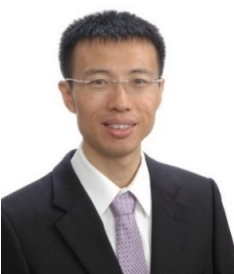Title: Physics-Assisted Machine Learning for Wave Sensing and Imaging
Speaker: Prof. Xudong Chen(IEEE Fellow)
Affiliation: National University of Singapore, Singapore
Abstract: In recent years, the use of machine learning (ML) to address wave imaging and sensing problems has garnered significant interest from researchers. However, most existing work in this field tends to adopt ML as a black box. In fact, researchers have accumulated substantial domain knowledge on wave physics over several decades, and some of these physical laws exhibit well-known mathematical properties, even analytical formulas, that do not require extensive data training. This talk emphasizes the importance of deeply understanding the corresponding forward problem when researching imaging and sensing problems, which are inherently inverse problems. Insights and intuitions, whether mathematical, physical, or engineering, can potentially aid in solving these problems more efficiently and elegantly. The presentation will cover several imaging scenarios, including microwave imaging, near-range mm-wave MIMO imaging, and scanning microwave impedance tomography. We will demonstrate how combining ML with existing knowledge of underlying wave physics can enhance image reconstruction in various contexts. Furthermore, this talk proposes a high-accuracy and efficient ML-based classification method for frequency-modulated continuous-wave (FMCW) radar. Instead of directly using measured data as input for the neural network, we start from the fundamental principles of wave physics to design a low-dimensional input. This classifier is applied to an automotive radar system, where road targets are categorized into five types. The proposed physics-assisted classifier is tested with real-world data from 77-GHz FMCW radars and proves to be competitive among state-of-the-art methods in automotive radar applications. Finally, the talk will summarize the experiences gained from solving various wave sensing and imaging problems.
Biography:

Prof. Chen received the B.S. and M.S. degrees from Zhejiang University, China, and the Ph.D. degree from the Massachusetts Institute of Technology, USA. Since 2005, he has been with the National University of Singapore, Singapore, where he is currently a Professor. He has published 180 journal papers on inverse scattering problems, material parameter retrieval, microscopy, optical encryption, and physics-assisted machine learning. He has authored the book Computational Methods for Electromagnetic Inverse Scattering (Wiley-IEEE, 2018), which has been adopted as a textbook by many undergraduate- and graduate-level courses worldwide. His research interests include mainly electromagnetic wave theories and applications, with a focus on inverse problems and computational imaging. Dr. Chen is a Fellow of IEEE and Fellow of the Electromagnetics Academy. He was a recipient of the Young Scientist Award by the Union Radio Scientifique Internationale in 2010. He is currently a Deputy Editor-in-Chief (D-EiC) of IEEE Transactions on Geoscience and Remote Sensing (IEEE T-GRS), and he was an Associate Editor (AE) of IEEE Transactions on Microwave Theory and Techniques, IEEE T-GRS, and IEEE Journal of Electromagnetics, RF and Microwave in Medicine and Biology. He has been members of organizing committees of more than 10 conferences, serving as General Chair, Technical Program Committee (TPC) Chair, Award Committee Chair, etc. He was the Chair of IEEE Singapore Microwave Theory and Techniques (MTT)/Antennas and Propagation (AP) Joint Chapter in 2018.